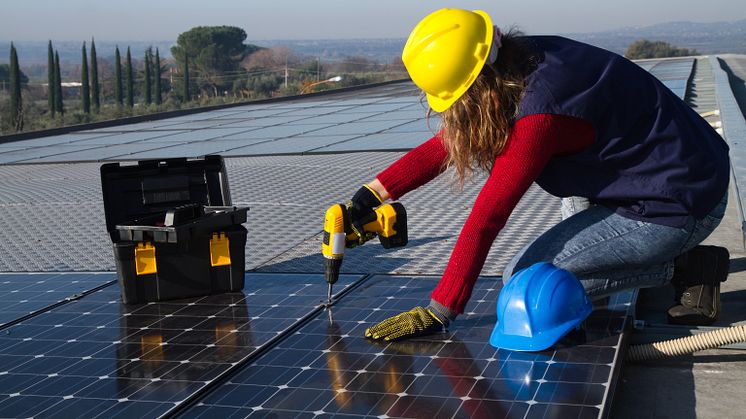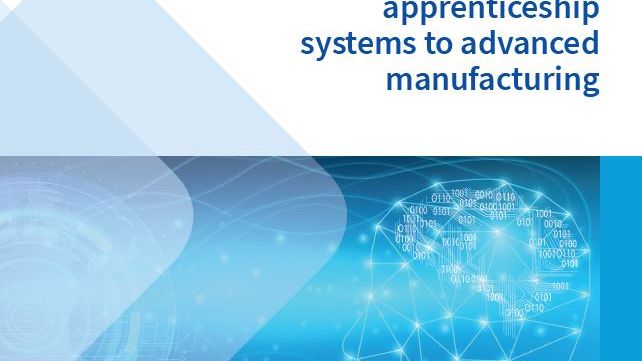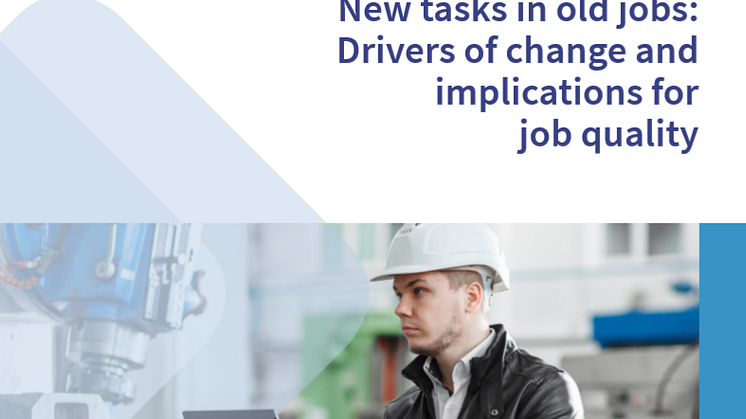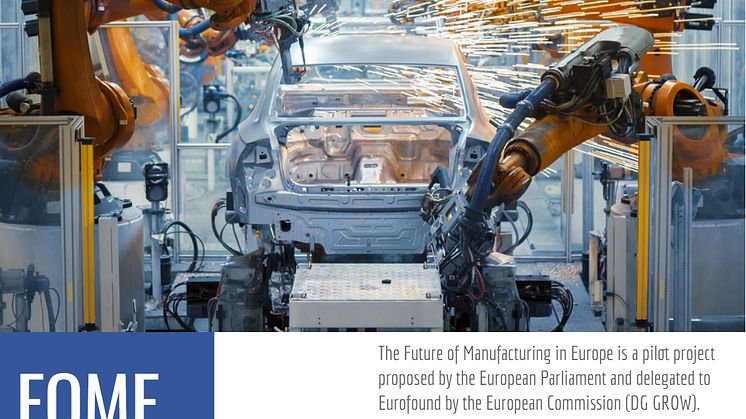
News -
Implementation of Paris Climate Agreement could boost EU GDP by 1.1%
The successful transition towards a low-carbon economy, as defined by the Paris Climate Agreement, is projected to result in a 1.1% growth in GDP, and a 0.5% growth in employment, in the EU between now and 2030. This is compared to a ‘business as usual’ baseline forecast. Globally, China is also projected to benefit from a low-carbon transition, but the United States would experience a 3.4% drop in GDP, and a 1.6% decline in employment.
This analysis is based on a global macro-economic model run by Cambridge Econometrics and Eurofound’s European Jobs Monitor. It is detailed in the Energy scenario: Employment implications of the Paris Climate Agreement report from the Future of Manufacturing in Europe (FOME) project. FOME is an EU project proposed by the European Parliament and delegated to Eurofound by the European Commission.
The projections detailed in the report are modelled on a basis that there will be no significant labour market frictions from the transition, in particular that the labour force will adapt to the structural change with regards to skill requirements. This assumes that finance is made available for the restructuring, and that countries maintain current levels of performance in key economic sectors.
The modelling shows that the full implementation of the Paris Climate Agreement is positive for the EU as a whole, both in terms of GDP and employment growth. This is mainly attributable to the investment activity required to achieve such a transition, together with the impact of lower spending on the import of fossil fuels. The shift towards production of capital goods, such as equipment, machinery and buildings, will result in a notable increase in demand for construction and for labour from related occupations.
On a national level, the study projects that Latvia, Malta and Belgium will experience the largest boost to GDP. At close to 6%, the projected growth in Latvia’s GDP is by far the most significant – this is largely due to the energy efficiency investment required, and the reduction in fossil fuel imports relative to GDP.
Belgium is also among the countries that would experience a marked increase in employment from the economic restructuring required to fully implement the Paris Agreement, resulting in increased consumer expenditure in labour intensive sectors such as retail, hospitality and catering. Spain and Germany would experience a similar phenomenon; in the case of Spain the report pinpoints the importance of solar photovoltaic electricity and lower consumer energy prices in generating disposable income to the benefit of labour-intensive sectors. The only country projected to experience a net decrease in employment is Poland, due to its large coal mining sector.
Commenting on the findings in the report, Eurofound Chief Researcher Donald Storrie said, “Climate change is expected to have very serious implications for living and working conditions on a global scale; it is the people who are socially, economically, or otherwise marginalised that are particularly vulnerable. This report shows the considerable economic and employment dividends for Europe in tackling climate change and fully implementing the Paris Agreement.”
The findings of this report, as well as other key outputs from the project will be discussed at the Future of Manufacturing in Europe event in Brussels on 11 April.
More information
Publication: Energy scenario: Employment implications of the Paris Climate Agreement
Event: Future of Manufacturing in Europe
Project page: Future of Manufacturing in Europe




